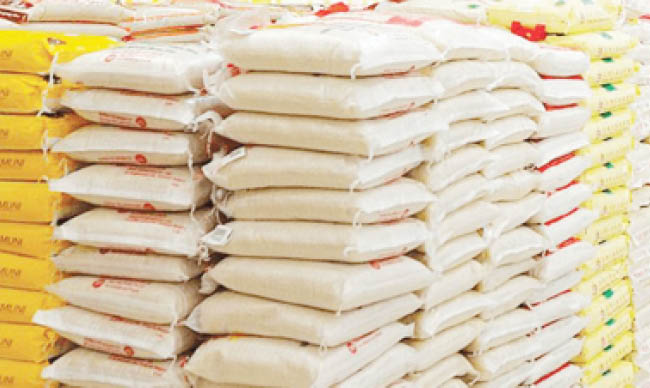Dawanau International Grain Market, which serves as a major supplier of various food and cash crops for local consumption and export, has devised and informally adopted a new commodity price strategy of doing business to escape the grip of the present cash crunch.
Findings have revealed that due to the cash scarcity experienced recently, prices of food commodities have crashed down in the market, as well as patronage.
It was gathered that grain merchants have been facing shortage in physical cash, which characterised about 70 per cent of means of doing businesses in the market. It was also revealed that the cash crisis had affected various sectors of grain businesses in the market.
According to a merchant in the market, Alhaji Wada Nasiru Bagwai, a 100kg bag of maize, which cost N22,000 before the cash scarcity, is now selling between N14,500 and N16, 500 with cash and N20,000 using bank transfer. He added that a 100kg bag of millet which cost N25,000 before the crisis, is now selling at N18,000 cash and N20,000 using transfer. He further revealed that a measure of rice is now N1,300 as against N1,800.
Experts seek reinvestment of petroleum subsidy in health sector
Egg price crash: We’re worst hit – Plateau farmers
It was also discovered that some places in the market are still collecting old naira notes to sell their commodities, but at a very high price. A 100kg of rice which cost N30,000 is now sold at N45,000 using old notes, just like other commodities. At few stalls collecting the old naira notes, it was observed that there were long queues of people intending to use their old notes to buy the commodity.
A merchant in the market, Alhaji Usman Bello Gwagwarwa, said the trend of buying with old naira notes began when the Central Bank of Nigeria (CBN) dateline for collecting old notes expired, adding that those collecting the old notes are selling with over 50 per cent increase on real price of the commodities.
It is still a misery what the merchants dealing with the old naira notes are doing with it. Grain merchants at Dawanau couldn’t explain what the old notes were meant for after collection.
“We saw them selling food and cash crops at a very high price collecting old naira notes despite the recorded drop in the commodity price we are encountering. We couldn’t figure out what they were using the old notes for,” one of the merchants said.
It was also gathered that in some of the major markets in the state, there had been a report of people collecting and doing business with old naira notes, but no one was willing to offer explanation on what they would do with it.

 Join Daily Trust WhatsApp Community For Quick Access To News and Happenings Around You.
Join Daily Trust WhatsApp Community For Quick Access To News and Happenings Around You.

